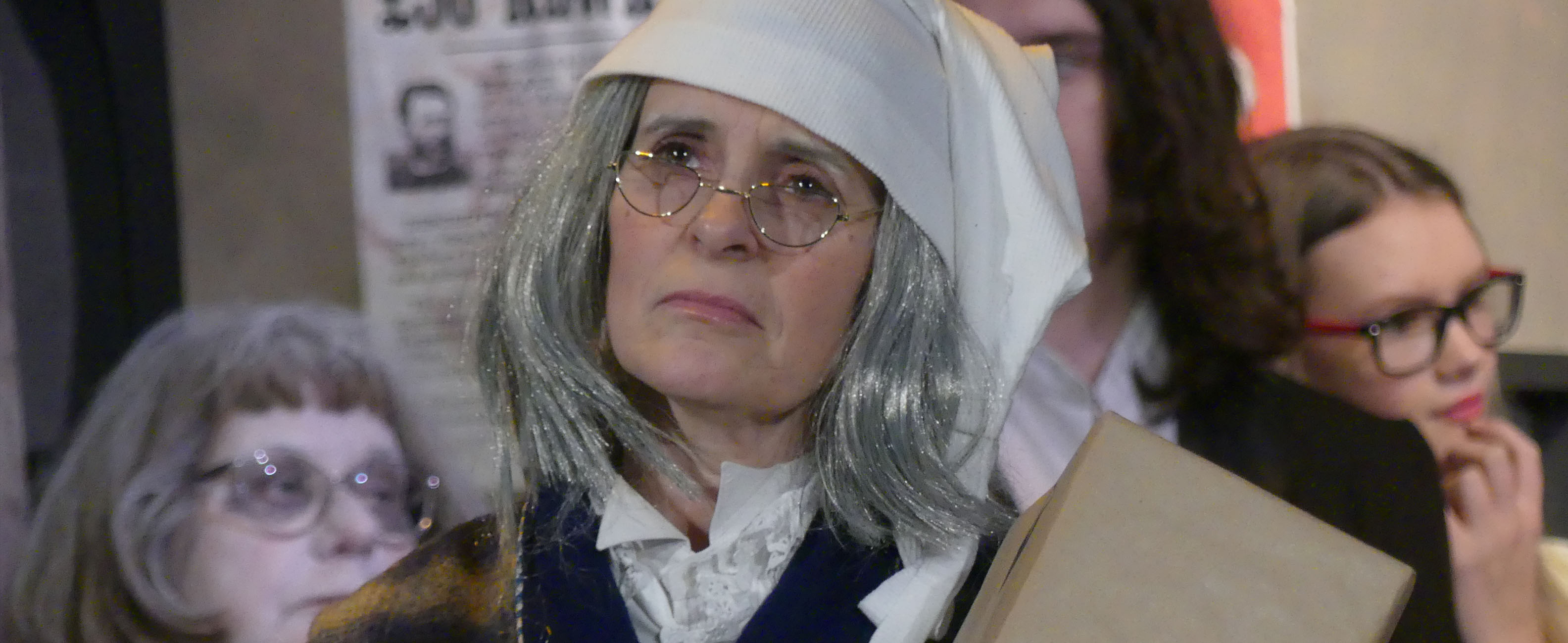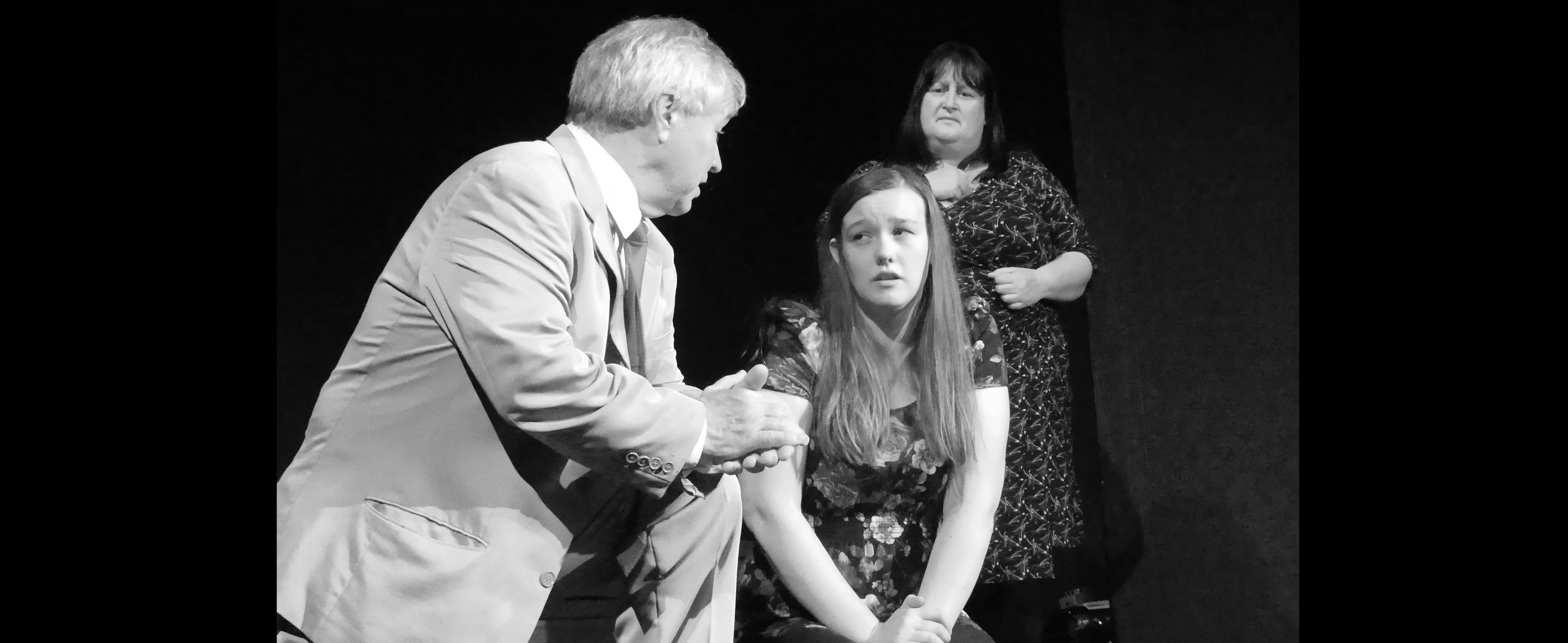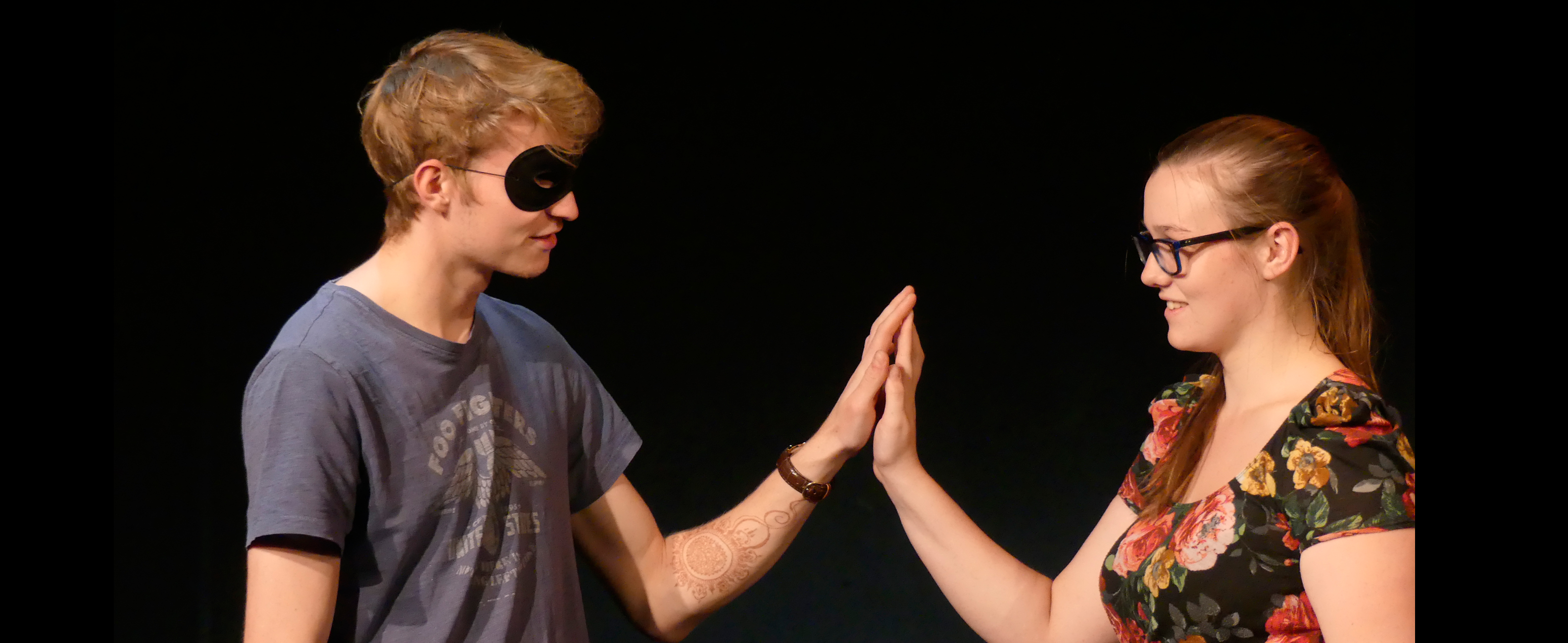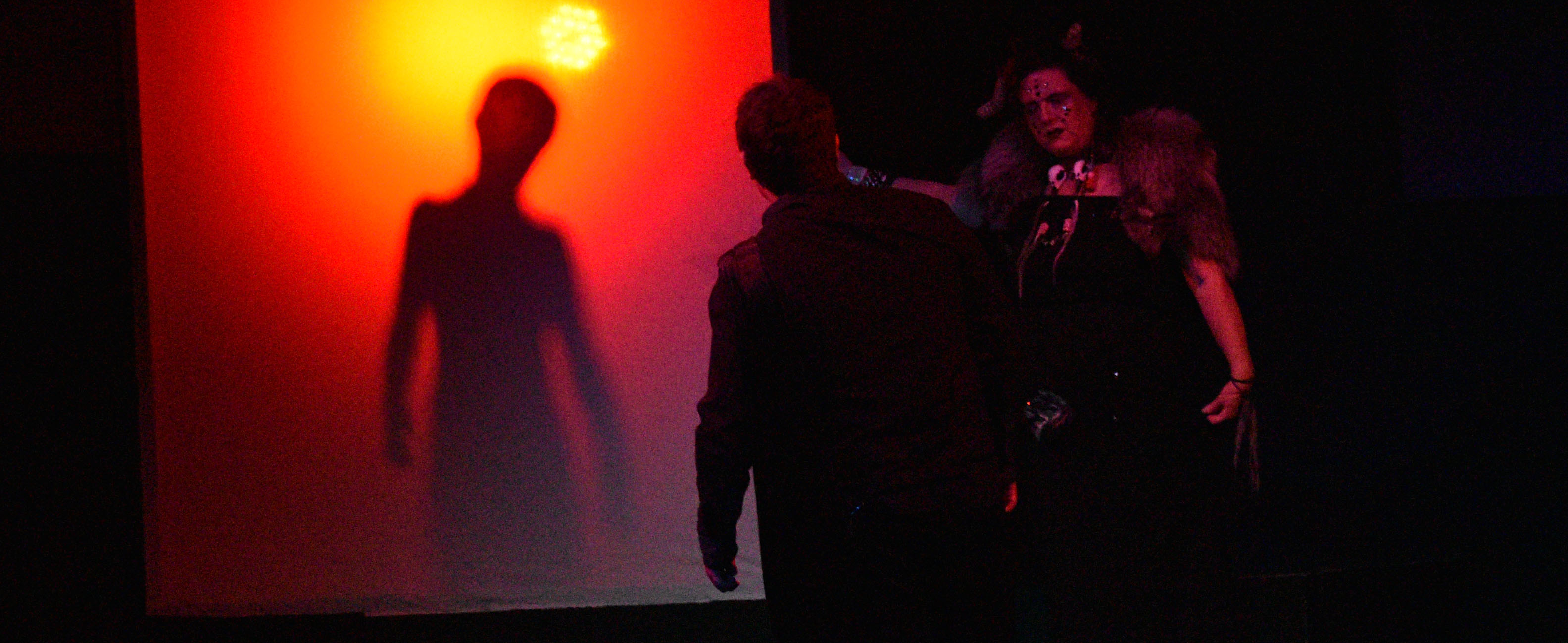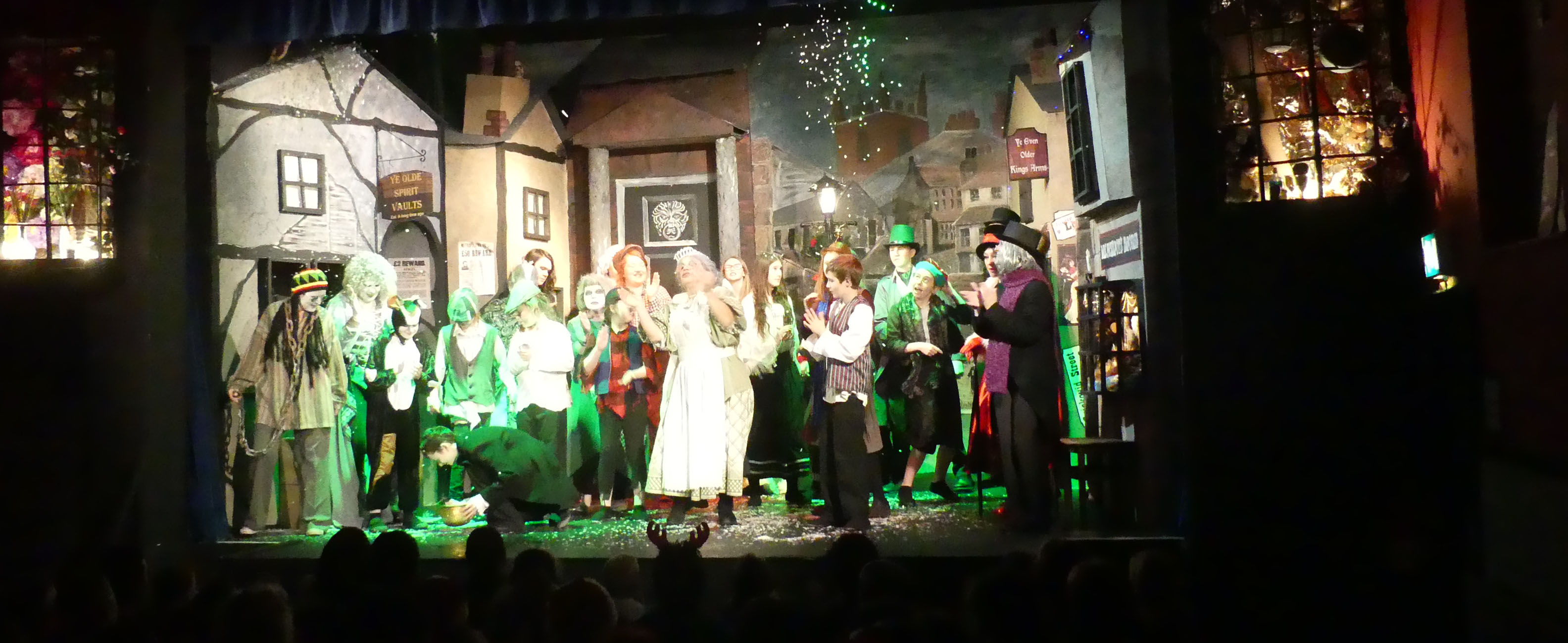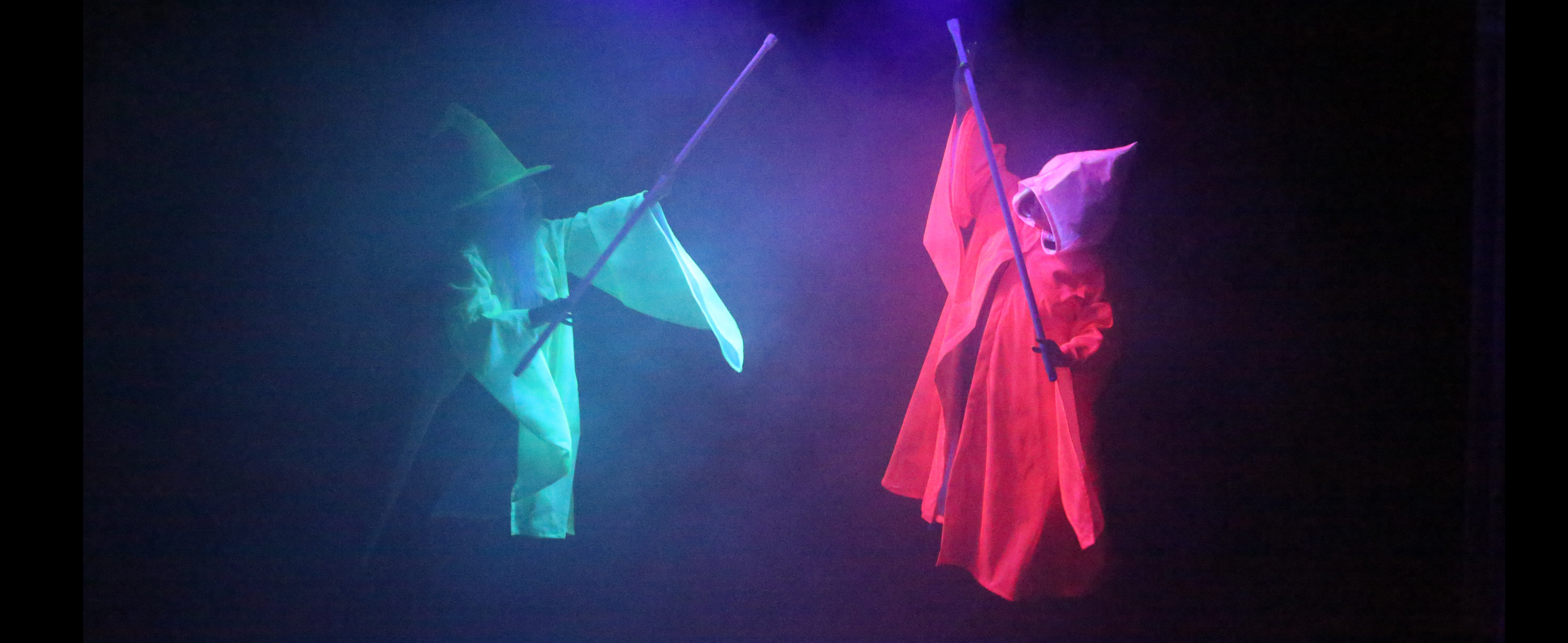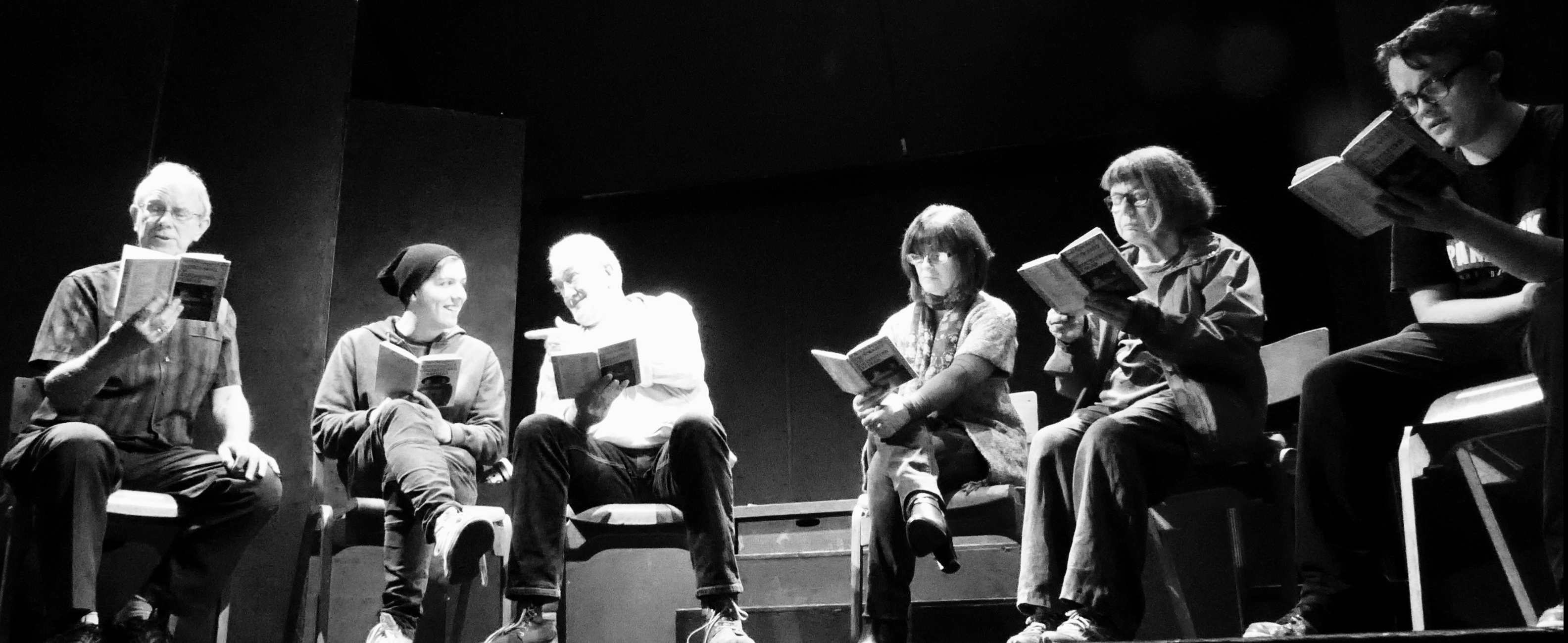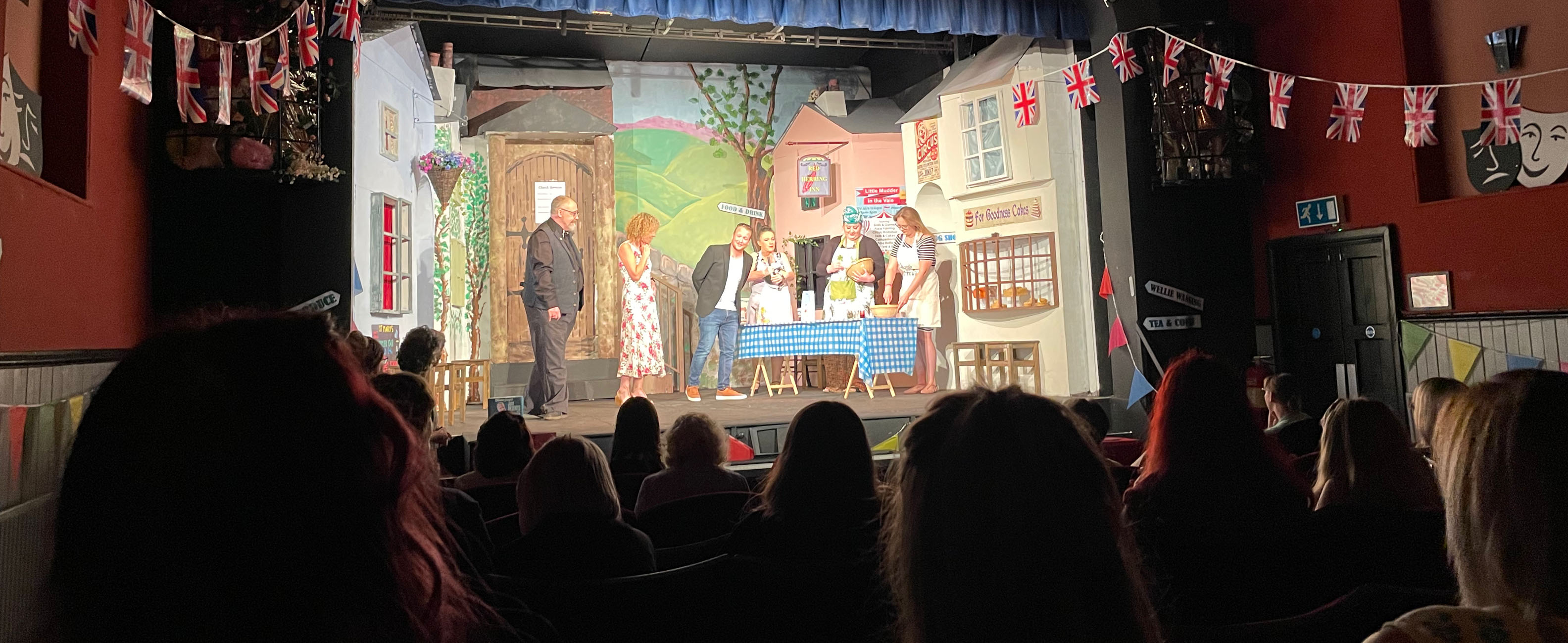John Peel Theatre
The Little Theatre at the Heart of Wigton
____________________________
Our Next Production:
A Midsummers Night's Dream![]()
Tickets available online

or by phoning 01697 424624
____________________________
President: Melvyn Bragg


____________________________
Our Facilities:
Proscenium arch theatre![]() 90 raked seats
90 raked seats![]() Wheelchair access
Wheelchair access![]() Induction loop
Induction loop![]() Licensed bar
Licensed bar![]() Real coffee
Real coffee![]() Ice cream & snacks
Ice cream & snacks
____________________________
Registered Charity No: 1178881
The Memorial Stone
In 2015, during building work to provide a proper foyer and technical area above it and accessed by staircase, we discovered a memorial tablet. We wondered why it was in the building, and what was special about the person named on it. Now, in 2019, with the helpful suggestions of posters on the Old Wigton Facebook page, and the availability of old newspapers online, we can give more details of the story so far. “Old Lane” is the original name for “Station Road” (the railway had come to Wigton in 1845).
The Wigton Advertiser Saturday June 30th 1888 reported that:
“A neat memorial tablet has just been put up in the Savation Army Barracks, Old Lane, in memory of the late Mr W.J.Carrick. It bears the following inscription “In Memory of the late W.J.Carrick, of Wigton, who fell asleep in Jesus, March 3rd 1888. etc” . The tablet is of white dove-veined marble, with letters of lead sunk into it, and is fixed upon an oval moulded stone of red freestone, and is altogether a very suitable tablet for the hall. Mr Philip Hewetson, of Wigton, was the executor of the work.”
Four months before, The Wigton Advertiser (Saturday March 17th 1888) reported on the on the rather cheerful proceedings to celebrate his life.
“On Sunday last memorial services were held by the Wigton Salvation Army in their barracks in the Old Lane to commemorate the death of their late lieutenant, Mr W.J.Carrick, at Hawkhurst in Kent. At half-past ten in the morning, a holiness meeting was held… In the afternoon the corps marched to the Fountain, headed by the band, with the colours draped, and knotted with white ribbons, each member wearing a white silk bow. Here the band played a favourite tune of the deceased’s, “Sweet Rest in Heaven”, and after a few testimonies were given, marched back to the barracks where another service was held. In the evening there was an overflowing meeting… The audience was composed of members of every denomination … The service commenced with the singing of a hymn, accompanied by stringed band, and prayer by Mrs Bell, after which the brass band played “Rocks and storms I fear no more.” Mr J.Robinson read a short portion of scripture, after which he gave a brief address. Captain Barnes then delivered an address …, in the course of which he reviewed the career of Mr Carrick since his connection with that mission. Six years ago, he said, Mr Carrick left the service at the Parish Church and attended a meeting of the Army at the Auction Mart… That was the beginning of a noble life, which had left its mark in Wigton today. They might erect tablets to his memory, but the best memorial was in the lives of the men and women who had been saved through his instrumentality. Wherever there was a case of sickness or need for help he was there with open purse and open heart; his was indeed a life to be proud of.”
Credit: Peter Tylor
(His obituary in the West Cumberland Times of Wednesday March 7th 1888)
“About six years ago (1882) he attended the Salvation Army meetings in the auction mart, and, throwing in his lot with this small and earnest body of men and women, he, with characteristic energy and self-sacrifice soon succeeded in organising and carrying out the scheme of providing a substantial building, because it was mainly through his influence, labour, and liberality that the barracks in Station Road were erected.”
What else do we know about W.J.Carrick?
William John Carrick was a solicitor of Wigton, who “went into partnership with his father, Mr Joseph Carrick, late of Floshfield, at a comparatively early age and succeeded on his father’s retirement, to the registrarship of Wigton County Court, which office he held up to 1887.
There is no doubt that he sacrificed his professional prospects, and perhaps many years of a useful career, for the sake of others.
His devotion to the cause overcame his prudence, and yielding to a resolution formed months before, he resigned his office and relinquished business, and in October last left Wigton to fill a position in the legal department in General Booth’s Army in London. With impaired sight and health he was unfitted to cope with his new duties, and in a few weeks completely broke down. He was ordered to Hastings for rest, and subsequently to Hawkhurst, in Kent, where he passed peacefully away.” He was only 39 years old when he died.
(His obituary in the West Cumberland Times of Wednesday March 7th 1888)
Considering the present life of the building, it seems fitting that Carrick, as being mainly responsible for its erection, was himself an entertainer. He had a reputation as an amateur actor, performing in fund-raising concerts and the comments below give some idea of the nature of his performances.
The Carlisle Journal Friday January 7th 1881 reported an “interesting concert given at the Cumberland Infirmary. Mr W.J.Carrick, of Wigton, with two of his ‘Carrick’teristic Impersonations’, Mons Anatole Francois Moustachio, a French-man seeking his fortune in Leicester Square; and Claude Hopper, the Somersetshire “chaw-bacon’, contemplating marriage with his sweet-heart, Dolly. The two sketches furnish an opportunity for striking contrasts between the vivacious politesse of the Frenchman and the stolid awkwardness of the ploughman, of which the artist did not fail to avail himself. Mr Carrick’s Impersonations quite justified the favourable reports which had preceded him from West Cumberland.”
Carlisle Express and Examiner May 7th 1881 reported an “Entertainment at Abbeytown” in which he performed the same sketches “and the clever and inimitable manner in which theses characters were portrayed met with loud and continued applause.”
In his obituary in the West Cumberland Times of Wednesday March 7th 1888 he was described thus:
“In his earlier years he was a clever amateur entertainer and personator, and was on very intimate terms with members of high standing in the histrionic profession, who always recognised Mr Carrick’s abilities. He was a splendid organiser, and being ever ready to benefit any deserving objects, he carried out successfully many entertainments in the town and district.”
The Wigton Advertiser Saturday June 30th 1888 reported that:
“A neat memorial tablet has just been put up in the Savation Army Barracks, Old Lane, in memory of the late Mr W.J.Carrick. It bears the following inscription “In Memory of the late W.J.Carrick, of Wigton, who fell asleep in Jesus, March 3rd 1888. etc” . The tablet is of white dove-veined marble, with letters of lead sunk into it, and is fixed upon an oval moulded stone of red freestone, and is altogether a very suitable tablet for the hall. Mr Philip Hewetson, of Wigton, was the executor of the work.”
Four months before, The Wigton Advertiser (Saturday March 17th 1888) reported on the on the rather cheerful proceedings to celebrate his life.
“On Sunday last memorial services were held by the Wigton Salvation Army in their barracks in the Old Lane to commemorate the death of their late lieutenant, Mr W.J.Carrick, at Hawkhurst in Kent. At half-past ten in the morning, a holiness meeting was held… In the afternoon the corps marched to the Fountain, headed by the band, with the colours draped, and knotted with white ribbons, each member wearing a white silk bow. Here the band played a favourite tune of the deceased’s, “Sweet Rest in Heaven”, and after a few testimonies were given, marched back to the barracks where another service was held. In the evening there was an overflowing meeting… The audience was composed of members of every denomination … The service commenced with the singing of a hymn, accompanied by stringed band, and prayer by Mrs Bell, after which the brass band played “Rocks and storms I fear no more.” Mr J.Robinson read a short portion of scripture, after which he gave a brief address. Captain Barnes then delivered an address …, in the course of which he reviewed the career of Mr Carrick since his connection with that mission. Six years ago, he said, Mr Carrick left the service at the Parish Church and attended a meeting of the Army at the Auction Mart… That was the beginning of a noble life, which had left its mark in Wigton today. They might erect tablets to his memory, but the best memorial was in the lives of the men and women who had been saved through his instrumentality. Wherever there was a case of sickness or need for help he was there with open purse and open heart; his was indeed a life to be proud of.”
Credit: Peter Tylor
(His obituary in the West Cumberland Times of Wednesday March 7th 1888)
“About six years ago (1882) he attended the Salvation Army meetings in the auction mart, and, throwing in his lot with this small and earnest body of men and women, he, with characteristic energy and self-sacrifice soon succeeded in organising and carrying out the scheme of providing a substantial building, because it was mainly through his influence, labour, and liberality that the barracks in Station Road were erected.”
What else do we know about W.J.Carrick?
William John Carrick was a solicitor of Wigton, who “went into partnership with his father, Mr Joseph Carrick, late of Floshfield, at a comparatively early age and succeeded on his father’s retirement, to the registrarship of Wigton County Court, which office he held up to 1887.
There is no doubt that he sacrificed his professional prospects, and perhaps many years of a useful career, for the sake of others.
His devotion to the cause overcame his prudence, and yielding to a resolution formed months before, he resigned his office and relinquished business, and in October last left Wigton to fill a position in the legal department in General Booth’s Army in London. With impaired sight and health he was unfitted to cope with his new duties, and in a few weeks completely broke down. He was ordered to Hastings for rest, and subsequently to Hawkhurst, in Kent, where he passed peacefully away.” He was only 39 years old when he died.
(His obituary in the West Cumberland Times of Wednesday March 7th 1888)
Considering the present life of the building, it seems fitting that Carrick, as being mainly responsible for its erection, was himself an entertainer. He had a reputation as an amateur actor, performing in fund-raising concerts and the comments below give some idea of the nature of his performances.
The Carlisle Journal Friday January 7th 1881 reported an “interesting concert given at the Cumberland Infirmary. Mr W.J.Carrick, of Wigton, with two of his ‘Carrick’teristic Impersonations’, Mons Anatole Francois Moustachio, a French-man seeking his fortune in Leicester Square; and Claude Hopper, the Somersetshire “chaw-bacon’, contemplating marriage with his sweet-heart, Dolly. The two sketches furnish an opportunity for striking contrasts between the vivacious politesse of the Frenchman and the stolid awkwardness of the ploughman, of which the artist did not fail to avail himself. Mr Carrick’s Impersonations quite justified the favourable reports which had preceded him from West Cumberland.”
Carlisle Express and Examiner May 7th 1881 reported an “Entertainment at Abbeytown” in which he performed the same sketches “and the clever and inimitable manner in which theses characters were portrayed met with loud and continued applause.”
In his obituary in the West Cumberland Times of Wednesday March 7th 1888 he was described thus:
“In his earlier years he was a clever amateur entertainer and personator, and was on very intimate terms with members of high standing in the histrionic profession, who always recognised Mr Carrick’s abilities. He was a splendid organiser, and being ever ready to benefit any deserving objects, he carried out successfully many entertainments in the town and district.”
